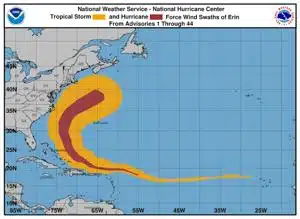(The Center Square) – As marijuana legalization spreads across the U.S., transportation and road safety organizations are sounding the alarm that driving high is just as dangerous as driving drunk — and much more complicated.
Marijuana, the THC-containing part of the cannabis plant, impairs driving performance by diminishing motor coordination, multitasking abilities, reaction time and distance perception, according to a report from the National Transportation Safety Board.
Impairment also lasts up to five times longer than alcohol intoxication, which usually wears off within eight hours.
But few Americans know about these dangerous effects or how long they persist, posing serious road safety concerns as drugged driving becomes more common.
In a March study by the AAA Foundation for Traffic Safety, found roughly 85% of 2,000 cannabis users reported driving the same day they use the drug. Only 19% thought their driving became worse after cannabis use and 34% believed they drove better after use.
“It is super clear that there are some real misperceptions about driving and cannabis use and the safety of it,” Rebecca Steinbach, who led the AAA FTS survey, told The Center Square. “We know that cannabis can impair your physical and motor function and your decision-making, and drivers aren’t always the best judge of whether they’re impaired.”
Since 2014, 24 states and the District of Columbia have fully legalized marijuana within their borders, while 13 other states allow medical marijuana.
Even where marijuana is legal, impaired driving is against the law. However, data indicates that increased marijuana usage has led to higher numbers of high drivers.
An AAA FTS study in 2020 compared cannabis use among drivers in fatal crashes in Washington before and after the state legalized recreational marijuana.
It revealed that the number of drivers involved in fatal crashes who tested positive for THC more than tripled from five years before the legalization law took effect in 2012. Additionally, both the number of crashes statewide and the number of THC-positive drivers involved in those fatal crashes increased.
A larger study by the National Highway Transportation Safety Administration (NHTSA) in 2022 examined drug use in 7,279 seriously or fatally injured roadway crash victims. It found that nearly half of those in the sample who tested positive for drugs — 55.8% — had cannabinoids in their system, topping the number of those who tested positive for alcohol.
Another 2022 report, conducted by the NTSB, found that cannabis was detected in approximately a third of drivers arrested for impaired driving, based on data from four major U.S. forensic toxicology laboratories.
Yet even with these statistics, the cost and complexity of marijuana testing versus alcohol testing has caused a “tremendous data gap,” according to the NTSB’s transportation specialist Ryan Smith.
“The result is a patchwork of missing and inconsistent drugged driving data both across and within states,” Smith told The Center Square. “Even though we know cannabis is an impairing drug, the lack of data makes it difficult to measure the [road safety] effects of policy changes such as cannabis legalization.”
“Regardless of its legal status in any state, cannabis is an impairing substance that increases crash risk,” he added.
To further complicate matters, determining cannabis impairment is significantly harder than determining alcohol intoxication.
Unlike alcohol, THC builds up in the body’s fat reserves over time, with higher usage resulting in higher levels of the psychoactive chemical. A frequent user who hasn’t used marijuana in two days and is not impaired could still test positive, so adopting a standard THC impairment threshold is virtually impossible.
“There’s a reason that there’s some public misperceptions about this,” AAA FTS’ Steinbach said. “It’s not as straightforward as alcohol. It’s confusing even for experts.”
The American trucking industry in particular has had to grapple with the fallout of state-level legalization. Brenna Lyles, Senior Director of Safety Policy at the American Trucking Associations, told The Center Square that although the ATA has no formal position on marijuana legalization, “there’s some pretty far-reaching industry and highway safety impacts that we can’t turn a blind eye to.”
A major problem is workforce ignorance of the Department of Transportation’s ban on cannabis usage that all commercial drivers — no matter where they live or travel in the U.S. — are subject to.
“That’s really a communication issue between the employer and the driver,” Lyles said. “All commercial drivers are subject to a federal drug test — it doesn’t matter what state they’re in. But more and more states are legalizing, and basically you just end up with confusion.”
The situation could become much worse, however, if the Trump administration decides to reclassify marijuana as a Schedule III drug.
Marijuana is currently classified as a Schedule I drug under the Controlled Substances Act, outlawing its possession or usage for any purpose. This places it on the U.S. Health and Human Services drug testing panel, which governs the DOT’s drug testing process for commercial drivers.
Under HHS Mandatory Guidelines, commercial transportation employers are only permitted to test their employees for Schedule I and II controlled substances. If marijuana becomes a Schedule III drug, those employers will no longer be able to test their drivers for cannabis use.
This change could lead to catastrophic consequences. Marijuana continues to be the most frequently detected drug among transportation industry workers subject to federal rules, with cannabinoids making up roughly 70% of all positives in the DOT’s Drug and Alcohol Clearinghouse database.
“At least with the state level legalization, employers still have the full right to test for marijuana,” Lyles said. “If it’s a Schedule III drug, it basically falls off the map unless there’s some kind of legislation or something to change that. So yeah, we’re concerned. We don’t want to see drivers high on the road.”
The NTSB has continuously warned Congress about the consequences of rescheduling marijuana.
“Transportation systems are among the most important ways in which the public may be exposed to risk from marijuana’s effects, and that transportation safety deserves prominence in the national conversation about marijuana rescheduling,” Smith told The Center Square, echoing previous NTSB testimony. “Marijuana impairment still poses serious safety risks, regardless of its classification.”
Steinbach, Lyles, and Smith all agreed that more public messaging about the dangers of driving high is needed, especially from trusted medical organizations.
“Because there are so many misperceptions, the key role for messaging is to get the word out there,” AAA’s Steinbach said. “Organizations like mine can bang the drum all we want, but we’re going to need to reach out more widely in order to actually get the message across so that people will listen.”



















































